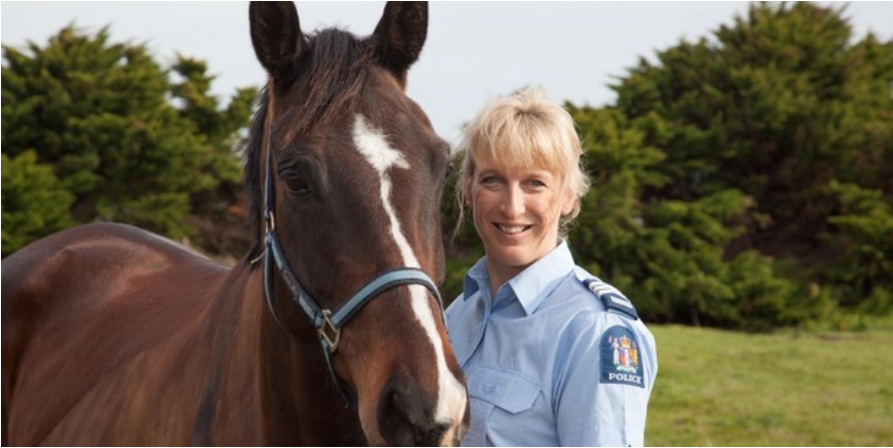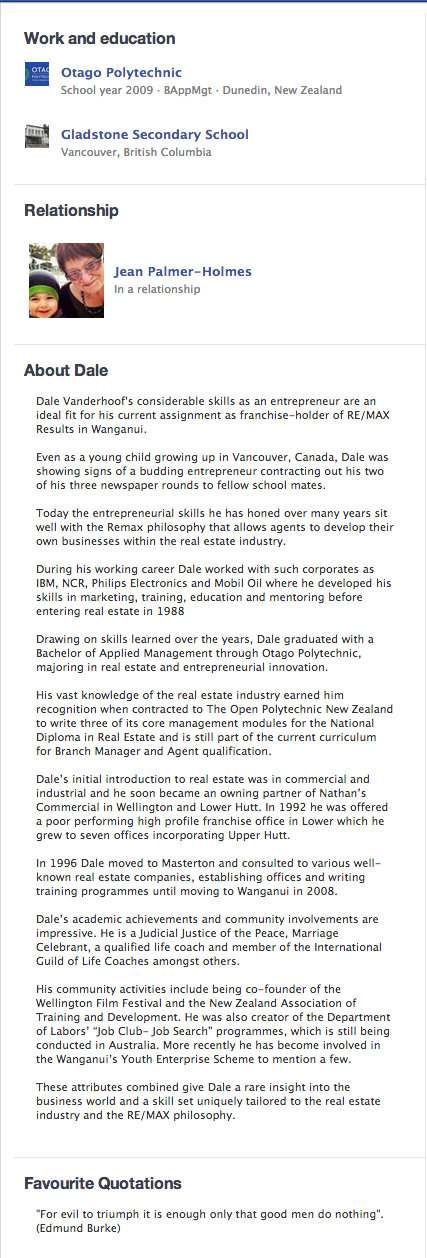As regular readers will be aware LF has been following a number of cases of corruption involving New Zealand government agency the Real Estate Agents Authority, or REAA as it is more affectionately known by the locals. In the cases that have been drawn to our attention, the likes of the Marnie Adams case, over the years since the REAA’s inception there is overwhelming evidence of skulduggery, at least by Australian and our EU standards. New Zealand however, it seems, is a different kettle of fish when it comes to acknowledging and dealing with corrupt government officials and malfeasant behaviour.
During a recent conference call between LF volunteers these issues were canvassed. Some amongst the team were of the view that LF needed to conduct a more comprehensive investigation into the REAA and more importantly the Real Estate industry itself to establish whether or not the problems had been systemic. As our resources are by no means limitless it was decided to run a test case, to pick at random a story that had been run in the local MSM that involved the REAA. The candidates were selected using the latest scientific methods, a Google search and a hat.
Search completed, LF was left with 15 individual cases that had been reported on, so into the hat they went. When the lottery was drawn the lucky winner was a gentleman by the name of William Charles Hume, a Real Estate Agent from the provincial centre of Wanganui New Zealand. The next step in the process that had been agreed upon was to establish with little more than what was publically available whether or not, in Mr Hume’s case, we could evidence the likelihood of malfeasance or wrong doing on the part of the accusers and or the REAA, its employees and the various tiers of investigative processes and or the tribunal itself.
The argument was simple, if we selected a case at random and then we were able to evidence that likelihood of corruption having occurred based on little more than information that was readily available through the internet, then it could be argued that the problems within the REAA were likely systemic in nature. So that there was no ambiguity around what LF team members defined as corruption and or corrupt behaviour a definition was predetermined along with the key behaviour’s that needed to be established. The definition LF used was that which is used by the Transparency International organisation:
Generally speaking as “the abuse of entrusted power for private gain”. Corruption can be classified as grand, petty and political, depending on the amounts of money lost and the sector where it occurs.
Grand corruption consists of acts committed at a high level of government that distort policies or the central functioning of the state, enabling leaders to benefit at the expense of the public good.
Petty corruption refers to everyday abuse of entrusted power by low- and mid-level public officials in their interactions with ordinary citizens, who often are trying to access basic goods or services in places like hospitals, schools, police departments and other agencies.
Political corruption is a manipulation of policies, institutions and rules of procedure in the allocation of resources and financing by political decision makers, who abuse their position to sustain their power, status and wealth.
Pretty straight forward really. Of course there is more to corruption than the definition, one has also to look for the means by which individuals, be they Govt officials or not, engage in corrupt behaviour. These behaviour’s are of course too numerous to name but there are a few that are key when establishing the likelihood of wrong doing; nepotism, abuse of process, lack of transparency, secret or concealed relationships, conflicted interests that are not disclosed and so on. Of course it is not necessary to evidence that these conflicts actually contributed to a disadvantage suffered, rather it is enough to establish that the conflicts existed and had been concealed, intentionally or otherwise.

Top left to right: Judge Paul Barber, Dale Vanderhoof/Jean Palmer-Holmes, Steven Price, Ngaire Vanderhoof, Aaron Van Delden, Michael Van Delden, Garry Denley, Gerald Gallacher.
Another of the key indicators in cases of corruption is often seen in how the media has dealt with a particular case. To establish wrong doing, or the perception of wrong doing by a media organisation is simply to establish how and why the stories came about, whether they where factual and balanced. Whether or not a published story contained “spin” and or was given the appropriate coverage or at least the prominence one would normally expect given to such stories by the organisation in question and last but by no means least whether or not there where any concealed relationships, conflicts of interest or other factors that under normal circumstances any normal person would have expected disclosed. The area of concealed conflicts in media representations is critical in that it is not important whether or not the subject is made aware of the conflict, rather its whether or not the publications readers are aware.
Its with this last factor in mind that LF has decided on this occasion to start with the medias involvement in the case of the REAA prosecution of the expat Scot and now struck off real estate agent, Mr William Charles Hume. Once Hume had been selected as the candidate for LF’s random investigation we started, as planned, to investigate in more depth. This is when it became more than obvious that there was something amiss with Hume’s case. The degree and nature of the media coverage was atypical, and as such warranted further investigation and analysis. First and foremost Humes case was very odd in that it had attracted an inordinate degree of media interest, the first red flag so to speak. Not only had the case featured in the local rag but it had also been syndicated nationally.
In all LF was able to locate five substantial articles. We also have it on good advice, that of Mr Humes himself, that at least one of the articles was given front page prominence along with an extraordinarily large photograph of Hume leaving the Wanganui courthouse (photo above). Given the nature of the story the fact that story extraodinarilly made the front page is somewhat important and we will revisit that issue later in this post.
The MSM stories that LF managed to locate during our investigation, with relative ease, are reproduced below for readers to view, we have colour highlighted areas of the text that we will be closely scrutinising later in this series of posts:
Real estate agent convicted of making threatening phone call
4:53 PM Thursday Jun 14, 2012A Wanganui real estate agent has been convicted of making a threatening phone call to previous employers, in which he said he was coming to get them, and would kill them both.
William Charles Hume, 53, appeared today for sentencing in the Wanganui District Court and was fined $750.
He was found guilty after a one-day defended hearing last month.
The identity of the complainants in the matter and the company in question have been suppressed by Judge Dugald Matheson.
Source: Wanganui Chonicle – Syndicated (Abridged) New Zealand Herald
————–
Real estate agent fined for threatening calls
Thu, 14 Jun 2012A Wanganui real estate agent has been convicted of making a threatening phone call to previous employers, in which he said he was coming to get them, and would kill them both.
William Charles Hume, 53, appeared today for sentencing in the Wanganui District Court and was fined $750.
He was found guilty after a one-day defended hearing last month.
The identity of the complainants in the matter and the company in question have been suppressed by Judge Dugald Matheson.
Source: Wanganui Chronicle – syndicated (abridged) The Otago Daily Times
————–
Real estate agent guilty of threat
By Court Reporter
A Wanganui real estate agent has been found guilty of making a threatening phone call to previous employers, in which he said he was coming to get them, and would kill them both.
Following a one-day defended hearing in the Wanganui District Court, William Charles Hume, 53, was found guilty of a charge that, knowing that his conduct was likely reasonably to intimidate a person, he threatened to injure that person.
The identity of the complainants in the matter, and the company in question were suppressed by Judge Dugald Matheson.
The charges relate to an incident on July 27, 2011 when Hume was alleged to have called his former workplace, with which he was having an employment dispute, shortly before 1pm.
The call was answered by the female complainant, to whom Hume said: “I’m coming to get you, pay me you fuckwits, I’m going to kill you both.” Then he hung up.
The call was recorded on phone records as coming from Hume’s cellphone, and lasted 11 seconds.
The complainant gave evidence that Hume sounded angry, like he was making the statement through gritted teeth.
Her body went into “complete meltdown” following the call, and she described herself as “absolutely terrified”, shaking and speechless.
“I’ve never experienced anything like that in my life.”
The complainant called police, who were in attendance when Hume and his two children appeared outside the offices of his former workplace around an hour later, carrying placards, one of which read “[company] stole $30,000 from us”.
The attending officer gave evidence that he asked Hume to move on, and he complied.
He was arrested at his home the following evening.
Hume vehemently denied the allegations, saying all he said on the phone was “I’ll speak to my girlfriend, thanks,” at which the complainant hung up.
He said it was his children’s idea to make the placards, and alleged his former employers owed him money so he was going to protest outside their workplace, having been trespassed from the property.
He also contacted the Wanganui Chronicle in the hopes of getting media coverage of his protest, and causing embarrassment to the company.
He said he called his former workplace to warn his then-girlfriend of the protest.
Hume said it was not until he spoke to the officer there that he learned of the allegation of threats. He claimed to be completely shocked, and called the situation a “set-up”, saying his former employers were trying to discredit him.
Rather than being angry that day, the protest was a “fun thing” for him, and a “bit of a giggle”, he told the court under cross-examination.
After the court had heard evidence from eight witnesses, four from each side, Hume’s counsel Stephanie Burlace argued that it was a case of credibility and that police prosecutor Sergeant Rachel Willemsen had not proven beyond reasonable doubt what happened.
There was clear motivation on both sides as to what was alleged and what transpired, she said.
Ms Willemsen argued that there was no motive for the complainant to fabricate her complaint and it had been distressing for her. Hume had been aggrieved enough on the day in question to call the media.
In making his decision, Judge Matheson said he noted in particular the evidence of a former employee of the same company, who was in the office the day the call came in.
He gave balanced evidence that was not necessarily complimentary to the complainant.
He gave evidence that he saw the complainant pick up the call, and within 10-11 seconds be demolished to hysteria and tears, indicating that it must have been something significant.
The defence had tried to paint the complainant as a hardened proprietor who was unpleasant in dealing with staff and, while he made no decision on that, it seemed that if that were true it made the observations of that witness even more pertinent.
Her reaction as described by the witness was consistent with someone who had heard what the complainant alleged they heard, Judge Matheson said.
What happened did not signify a “set-up”, no one knew about the protest except the media, and it rather identified that Hume was agitated and in a state where he was prepared to engage his children in a public protest.
That, coupled with witness evidence and officers’ observations of him being a blunt personality, and “initially agitated” on other occasions they had dealt with him, helped him come to the guilty verdict.
Hume was remanded on bail to reappear on June 2.
Source: Wanganui Chronicle
——————-
Real estate agent walks out of hearing
By Merania Karauria – WANGANUI CHRONICLE
7:17 PM Tuesday Jul 16, 2013
A man facing three charges of misconduct under the Real Estate Agents Act walked out of a disciplinary hearing in Wanganui yesterday.
During the final submission by the Real Estate Agents Disciplinary Tribunal’s lawyer late yesterday, William Hume got up from his seat, exchanged a few words, and left.
Hume told Judge Barber: “I am getting angry … I’ve had enough of this stuff … I can’t listen to it, it’s really starting to agitate me.”
Hume was facing three charges of misconduct brought by the Complaints Assessment Committee under the Real Estate Agents Act. They were that his conduct was disgraceful; that his conduct constituted seriously incompetent or seriously negligent real estate agency work, and/or that he wilfully or recklessly engaged in conduct likely to bring the industry into disrepute, and that a conviction reflected adversely on his fitness to be a licensee.
Last year, Hume was convicted and fined $750 on a threatening to injure charge.
The hearing, before Judge Paul Barber and Garry Denley and Nola Dangen of the Real Estate Institute, was to continue today, but Mr Hume’s exit brought the hearing to a close.
Judge Barber directed Real Estate Agents Authority lawyer Luke Clancy’s submission to be typed and sent to Hume.
Hume was also to be told via email that there would be no hearing today, and that he had two weeks to respond.
The tribunal’s decision would follow once Hume responded.
Mr Clancy told the hearing that “even after being arrested by the police, prosecuted in the District Court, and failing to have his conviction quashed in the High Court”, Hume had no insight into the seriousness of his behaviour.
Hume interjected to say he did not accept it, “because I know I had not done it”.
Mr Clancy continued that the charges were disgraceful, and that Hume had a propensity to act aggressively when things did not go his way.
Hume, who defended himself, is charged that on or about December 16, 2008 he threatened the branch manager, Anne Williams, of CD Realty. He telephoned her and said: “You’ve f***ed with me once too many. I am going to destroy you, I’m going to take you out.”
Real estate agent Angela Ellis witnessed the call and afterwards told him to “calm down, come and have a cup of tea”, then suggested he call her back and apologise. He did.
Yesterday, Ms Williams told the hearing she was no longer the branch manager, and that she had developed a heart condition brought on by stress around his conduct.
On or about December 22, 2009, Hume told Steven Ellis of Rivercity Realty: “I feel like coming over and smashing you,” and, “I don’t make threats I’m not prepared to carry out.”
The hearing was told that on February 28, 2011, Hume took property from DGV Realty. On May 17, he phoned Dale Vanderhoof of DGV Realty and said: “I’m going to escalate it you motherfucker – I’m going to kill you.”
Hume contests that Mr Vanderhoof owes him $30,000 from when he worked for his company.
Hume challenged all that was before him, saying he had “been honest as I can, calm as I can”.
Tim Hocquard, Ray White Realty principal, said Hume had worked for him for two-and-a-half years and had “behaved in a manner that would make real estate proud”.
Source: Wanganui Chronicle – Syndicated New Zealand Herald
——————–
‘Lax’ agent’s penalty cut after appeal
By Staff Reporter
6:00 AM Saturday Jul 14, 2012
Wanganui real estate agent Bill Hume has managed to almost halve a fine of $3000 imposed upon him by the Real Estate Agents Authority’s complaints committee after he was found guilty of unsatisfactory conduct last year.
Hume, who now works for Ray White Real Estate, was found guilty of two counts of unsatisfactory conduct in July 2011 following a complaint from a client who listed a property with him.
He was fined $3000 in December 2011, but on appeal to the authority’s disciplinary tribunal, the penalty was dropped to a fine of $1750.
The committee found Hume guilty of failing to provide a written appraisal of the complainant’s property to her.
In their decision, they called Hume “indifferent” to or unaware of new client care rules which require an appraisal of land to be provided in writing to the client. Because of his dyslexia, Hume relied on colleagues to do paperwork for him.
While the delegation of the task was fine, the committee found that it was not enough for Hume to say he believed everything he needed to comply had been given to him by his colleagues.
Every agent was responsible for their own practice and he needed to be aware he had to provide a vendor with more information.
On the second count, he was found to have failed to explain to the complainant in writing, when inviting signature of an agency agreement, how commission is calculated, including an estimated cost of commission payable by the complainant based on the appraised price of the property.
The committee found while an estimated commission rate was contained on the agency agreement, neither the amount of commission nor the appraised price of the property were realistic, so the complainant did not receive the right information about the estimated cost of commission.
On appeal of the penalty, Hume’s counsel, Stephanie Burlace, argued he had since made “significant changes” to his practice, and he had since moved to another agency where he had undertaken training in the new legislation and client care rules.
It was her submission that the finding of unsatisfactory conduct should be a sufficient penalty in itself.
The tribunal concluded Hume had been “lax” in his attention to paperwork and discussions with clients, but noted he had since moved to another company and had a better understanding of his obligations.
However, he could not “hide” behind his dyslexia, and it was his responsibility to ensure all necessary steps were taken to comply with the Real Estate Agents Act, which he did not do.
They considered the issue of commission was one that should be resolved in the civil court, and should not be subject of an order by the tribunal.
However, the tribunal still found it appropriate to impose a fine on Hume.
Hume has the right to appeal the decision to the High Court.
Source: Wanganui Chronicle
———————-
Real estate agent battles on
By Court Reporter
7:37 AM Friday Jun 15, 2012
A Wanganui real estate agent is lodging an appeal with the Court of Appeal against his conviction and sentence, handed down in the Wanganui District Court yesterday.William Charles Hume, 53, was convicted and fined $750 on the charge that, knowing his conduct was reasonably likely to intimidate a person, he threatened to injure that person.
The complainants’ identity, and the company in question, were suppressed by Judge Dugald Matheson.
The charge related to an incident on July 27, 2011, when Hume was alleged to have called his former workplace, with which he was having an employment dispute, shortly before 1pm.
At the defended hearing, the court was told the call had been answered by the female complainant, to whom Hume had said: “I’m coming to get you. Pay me, you fuckwits. I’m going to kill you both.” Then he hung up.The call was recorded as coming from Hume’s cellphone, and lasted 11 seconds.
The complainant gave evidence that Hume sounded angry, like he was making the statement through gritted teeth. Her body had gone into “complete meltdown” following the call, and she described herself as “absolutely terrified”, shaking and speechless.
“I’ve never experienced anything like that in my life,” she said.At his sentencing yesterday, Hume had lodged an application for discharge without conviction through his counsel, Stephanie Burlace, to the Wanganui District Court. Miss Burlace said Hume had won a judgment recently from his previous company of $147,000, which was unpaid commission and interest.
She said Hume had suffered through the publicity about the case and that numerous character references had been sent to her and the court. “The fallout in this case has been considerable … Bill Hume’s life has gone pear-shaped because of it … the publicity has had a huge impact, and he has suffered greatly.”
But Police Prosecutor Sergeant Rachel Willemsen said Hume had shown absolutely no remorse throughout. “He has made no amends and no apology.”Ms Willemsen said the conviction was serious and Hume had a previous conviction for common assault in 2006.
Judge Matheson said regarding Hume’s appeal against conviction in the district court, he had three elements to consider:They were: gravity of the offence, consequence of the offence, and independent assessment of offence.Regarding the gravity of the offence, the police had said the offence was a serious threat to the victim’s safety, Judge Matheson said. “And that is how I see it as well. It is a serious matter.
“The consequence of your offence signifies hardship to you and your children if your real estate licence is revoked because of a conviction,” Judge Matheson said. “But I see that as a completely independent inquiry and nothing to do with this court.”
The court could not make an assessment of the offence in this case, because it must be left to an independent body to decide, he said.“This is a serious offence and there has been no remorse … therefore, I cannot discharge you without conviction”.
Source: Wanganui Chronicle——————Real estate agent’s threat appeal dismissed
By Aaron van Delden – WANGANUI CHRONICLE
11:52 AM Wednesday Dec 19, 2012
A Wanganui real estate agent’s appeal against his conviction and sentence for making a threatening phone call to his former employers has been dismissed.
William Charles Hume, 53, was convicted and fined $750 after being found guilty earlier this year on one count of threatening to injure a complainant, knowing his conduct was likely to intimidate.
The charge related to a brief call Hume made on July 27, 2011, to his former workplace, the Wanganui franchise of Remax Real Estate.
The call was answered by the agency’s co-owner, Jean Palmer-Holmes, who complained that Hume said: “I’m coming to get ya. Pay me, ya bastards, I’m going to kill ya both.”
But during an appeal hearing before Justice Robert Dobson in the High Court at Wanganui on Monday, Hume’s lawyer Stephen Ross asked the court to consider whether Ms Palmer-Holmes misinterpreted or misheard Hume, given his strong Scottish accent.
Hume suggested he had simply asked to speak to someone else in the office, his girlfriend.
At the time the call was made, Hume was involved in a dispute with his former employers Ms Palmer-Holmes and her partner Dale Vanderhoof.
He believed they owed him $30,000 in commission earned while working at their agency.
Mr Ross said that during Hume’s defended hearing in April, no weight was given to any potential motive for Ms Palmer-Holmes to make a false claim.
A conviction could threaten Hume’s career by affecting his ability to hold a Real Estate Agents Authority licence and bring into question his credibility during proceedings to recover the money he believed he was owed.
Further submissions were made regarding the analysis of evidence provided by a witness to the phone call at Hume’s defended hearing.
Mr Ross suggested that evidence had not established whether the witness, Remax employee Steven Price, observed the entire incident, even though it was considered he had seen the whole episode and his evidence was viewed as reliable on that basis.
Mr Price had described the phone ringing, Ms Palmer-Holmes answering it and seeing her reaction of great distress to the short call.
Justice Dobson said he would consider the hearing’s transcript before making a decision, which he released yesterday.
His judgment rejected the criticism of Mr Price’s evidence.
Justice Dobson said it was garnered in the context of a relatively small office and a reliance on it was justified.
He said Judge Dugald Matheson, who presided over the defended hearing, had acknowledged Hume’s concern regarding the motive behind Ms Palmer-Holmes’ complaint “but did not treat it as a factor requiring him to disbelieve the complainant when, on the totality of the evidence, he was satisfied that her version was made out”.
Source: Wanganui Chronicle – syndicated New Zealand Herald
So where to start? LF started with the articles, as aforesaid, there was an abundance of material available online, material that had for the most part been syndicated to newspapers throughout the country, including the New Zealand Herald and the Otago Daily Times.
Theres also the fact that the story made the front page complete with a photgraph of an unflustered William Hume leaving the Wanganui Court house. One article, above all, stands out as a good place to start, not because of a hack journo’s skilful reporting, rather its a sentence that misleads the reader into believing the conclusion is a direct qoute from the presiding Judge, which of course it is not.
The journalist wrote, obviously with the intention of damaging Hume’s credibility; “What happened did not signify a “set-up”, no one knew about the protest except the media”
Reading between the lines, as we do, LF decided to go looking. What stood out like dogs balls, with the stories that the Wangaunui Chronicle had published on Hume, was the fact that the majority had not been attributed to a particular journalist. Instead the newspaper had strangely decided to attribute all but two of the works using the generic terms “Staff Reporter” and “Court Reporter”.
Its an oldie but its a goodie. Its exactly the sort of thing newspapers do when they know that by naming the reporter it could, at best, prove extremely embarrassing or perhaps, as is very likely in this particular case, in a worse case scenario, evidence a conspiracy to falsely accuse – which is of course a criminal offence.
The later pieces that appeared in the Wanganui Chronicle and the New Zealand Herald were however attributed to two Journo’s, one Merania Karauria and a pimple faced junior by the name of Aaron Van Delden, two individuals who certainly have a pedigree and some very interesting relationships! There was however one particular Wanganui Chronicle journalist who’s name did not appear in any of the articles, arguably for good reason, and no doubt a component in what LF believes was likely a conspiracy to falsely accuse Hume.
That journo is one Ian Hyndman. Now the fact that Ian Hyndman had a very close relationship with the Wanganui Chronicle and its other journalists may also have some bearing on the reasons behind the police and complainants application for suppression of the business name and the plaintiffs identities. Especially when one takes a closer look at the judges purported belief that “no one knew about the protest except the media”.
Now of course in the absence of the complete truth the Judges understanding of the facts, and his conclusions, seem reasonable. The judge however, was obviously, in this case, kept in the dark by the local police prosecutor, Sergeant Rachel Willemsen, who would have undoubtedly been aware of the standing of the plaintiffs and their relationships, especially when it came to family members who just happened to be employed by the Wanganui Chronicle.
The facts are that the police advised the court that Hume had telephoned the Wanganui Chronicle and advised that local newspaper that he intended protesting outside the plaintiffs offices. The judge, and the readers, thanks to the name suppressions, where not aware that the plaintiffs had an extraordinarily close relationship with the staff of the Wanganui Chronicle, firstly because the business, a real estate agent, spent vast sums in advertising with the newspaper, and secondly, perhaps more importantly, because one of the plaintiffs, Jean Palmer Jones, brother, Ian Hyndman was a local Journalist and their inside man at the Wanganui Chronicle. Now had the judge been aware of these facts we doubt very much that Judge Dugald Matheson would have convicted William Hume.
Armed with this additional information the Judge would undoubtedly have had a few more questions for police Sergeant Rachael Willemsen, one question that immediately springs to mind, did Ian Hyndman or another Wanganui Chronicle staffer telephone Hyndman’s sister Jean Palmer-Jones and warn her that Hume would be turning up to protest, so that she was then able to call the police? We believe that this is in fact what occurred. Hence the polices application for suppression of the business name and the identities of the two plaintiffs, Dale Graceland Vanderhoof and his defacto partner Jean Palmer-Holmes.
This is just the “tip of the iceberg” so to speak. At this stage, on the information we have, LF are quite comfortable calling Jean Palmer Holmes and Dale Graceland Vanderhoof complete and utter fucking fraudsters. Two fraudsters who have used their positions and contacts within the Wanganui community to well and truly fuck over their victim, William Charles Hume.
This pair of shysters have been assisted in their mission by the Wanganui Chronicle, relatives and “friends” employed by that newspaper, the New Zealand Police, the registrars and clerks of the local District Court, a number of staff at New Zealand’s Real Estate Agents Authority, and last but by no means least the official assignee, Grahame Fridd, who has been tasked with finding the assets needed to pay this pairs creditors, amongst them William Charles Hume who is now owed $169’932.92 by this pair of shonky bastards.
This little tale of woe has so much more depth to it and in part two LF will be dealing with the various other relationships that Vanderhoof and Palmer-Holmes used in their efforts to avoid their debts.
Remember readers, Facebook is a very useful tool when investigating wrongdoing. It provides a wealth of information that can be used to establish relationships that, for whatever reason, are often concealed by those conspiring in pursuit of a nefarious goal. People such as the Vanderhoof’s and the Palmer Holmes of this world who will go to extraordinary lengths to get themselves out of the shit.
We will leave readers with some of the spin we found on various web sites, spin doctored crap that is the hallmark of a master con artist and a very nasty individual, Wanganui Justice of the Peace, Dale Graceland Vanderhoof. Readers can also check out Hume’s summary judgement for $169’932.92 here
Continue reading: New Zealand’s REAA – Six Degrees Of Seperation – Facebook, Fraudsters & Free Masons – Part Two
Related articles

























No Comments
Mr Hume, I understand and sympathise with your outrage and frustration. You now have first hand experience of the corruption and malfeasance that permeates the governance of New Zealand (not just the REAA). Disturb a pack of predatory feral dogs and they will savage you. In provincial New Zealand, with its limited gene pool and consequent predominance of mental defectives or ‘fucktards’ as LF would say, the destruction of personal and professional standing by the making of false allegations that are processed through a deliberately obtuse legal system is commonplace to the extent of being considered appropriate behaviour. In other countries it is called ‘criminal behaviour’. Your experience is not unique, but I expect that is of little comfort to you. Good luck in collecting what’s owed to you – your going to need it. Thank you LF for posting this one for all the world to see.
Fucking hell what a corrupt little shit hole. Not the town, the REAA!!!!
Your not wrong Samantha they have made my life hell for the last 3 years .